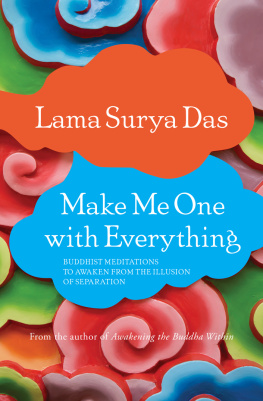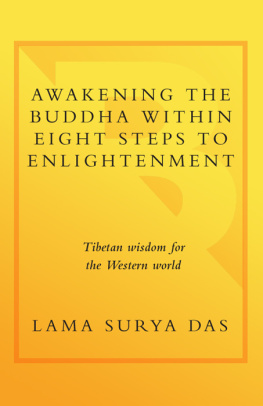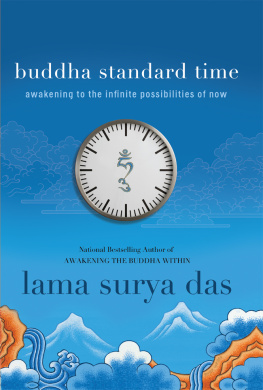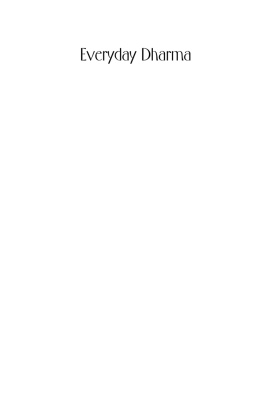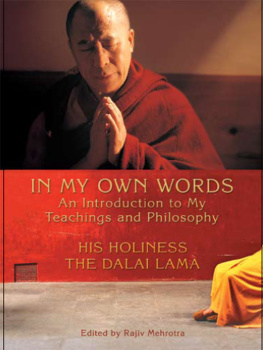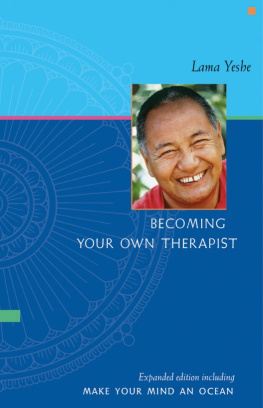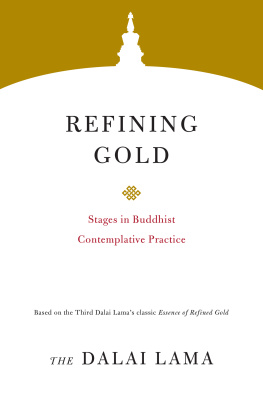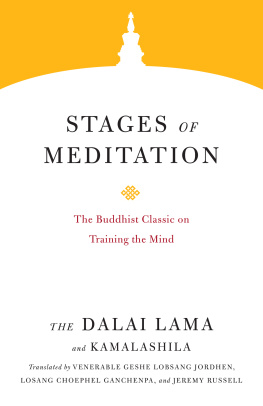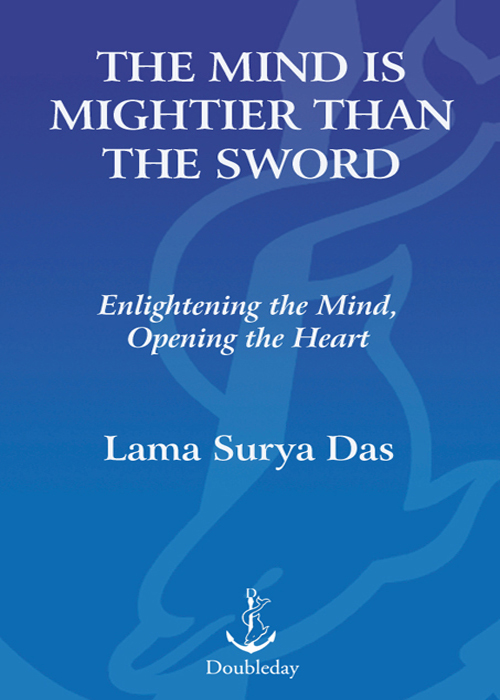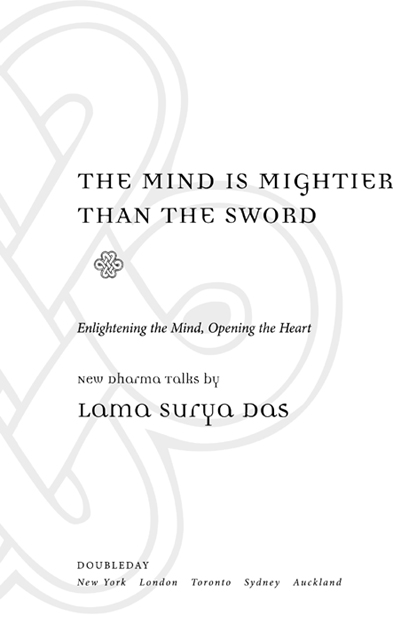It takes a sangha community to produce a Dharma talk, especially when using modern technology. I want to gratefully acknowledge the help of those who have generously contributed their time, energy, and expertise to this process over the last few years.
Thank you to Bob Hildebrand, the original editor of some early Dharma talks published privately by our Dzogchen Foundation ten years ago, and to Roz Stark for untiringly transcribing many talks. Much gratitude to Susan Burgraff and Julie Barker for research and edits; Ron Goldman for tape recording; Paul Crafts, Christopher Coriat, and Leah Weiss Eckstrom for many vital suggestions; and Joseph Goldstein, Sharon Salzberg, and Lew Richmond for friendship and advice. Hal Ross did a wonderful job early on in editing these Dharma talks, and Leslie McClain and Jill Stockwell did major work on the final version. And many thanks to my publisher, Random House, and to my editor there, Trace Murphy, and assistant editor Darya Porat for their enthusiasm about this book. My ever-helpful literary agent, Susan Lee Cohen, helped bring it out of the filing cabinet, and my Dharma teacher colleagues help remind me to just keep at it.
These new Dharma talks are dedicated to my students, who continue to ask great questions, make me rethink traditional concepts, and draw living Dharma out of me. May all their sterling prayers and aspirations be fulfilled!
B uddhist wisdom or teaching is called Dharma. Dharma means truth, cosmic law, religion, spirituality, as well as morality, duty, and reality. Etymologically, it is derived from a word meaning that which carries or upholds, bears up, and sustains us, embracing us like the earth. Dharma is our very ground, the ground of being and existence. Dharma also means good medicine: that which heals what ails us, relieving suffering and confusion. How we need such healing during these violent, troubled times! To benefit others and help alleviate spiritual hunger today, in conjunction with the requests of my students, these new Dharma talks from the last decade have been transcribed, lightly edited, and offered here in print.
To me, the Dharma is like a splendid spiritual jewel, radiant with wisdom, love, peace, joy, meaning, and a multitude of other blessings and benefits. There are many kinds of Dharmaor spirituality and religionin the world. And there is worldly wisdom and knowledge, which is a kind of Dharma, too, because it helps us live better and flourish. Buddha Dharma is what we Buddhists call noble Dharma, sublime Dharma, liberating Dharmafor it emancipates and frees us from illusion, suffering, and confusion. And it brings about inner freedom and total enlightenment, the ultimate accomplishment of our deepest, truest aspirations and greatest possibilities. Noble Dharma is the panacean, elixir-like gift that keeps on giving, not unlike that wish-fulfilling secret water Jesus offered that is said to slake thirst eternally.
There is a great spiritual hunger today amid the fears, uncertainties, and dangers of our time. Traditional religions, with their various limitations and often inflexible, anachronistic doctrines, seem incapable of genuinely addressing it. As Patrul Rinpoche, the enlightened vagabond of Kham, eastern Tibet, sang more than one hundred years ago in his renowned Advice to Myself: For ages now youve been beguiled, entranced, and fooled by appearances. Are you aware of that? Are you? Right this very instant, when youre under the spell of mistaken perception, youve got to watch out. Dont let yourself get carried away by this fake and empty life. It is liberation from the illusions, confusion, dissatisfaction, and suffering of this inauthentic life that Dharma delivers to us. Would you like to know the true secret of spiritual living? You are. It is your authentic life which can save you, would you only find and genuinely live it.
Many of us are looking deeper for satisfaction, fulfillment, and well-being, for authenticity and meaningful spiritual connection after discovering the defects and limitations of worldliness, the fleeting nature of sense pleasure and material success, and the disappointing fact that selfish egotism, materialism, and scientific and technological progress still leave us wanting. For such reasons, Tibets great yogi Milarepa went alone into the Himalayan wilderness long ago, becoming fully enlightened through assiduous meditation, yoga, and faithful devotion. It is said that his unshakable resolve and diligence is part of the powerful current still turning the life-giving waterwheel that is the spirit of living Dharma. Following in the footsteps of the masters of old, the siddhas (enlightened adepts) of ancient Indiasuch as Saraha, Nagarjuna, Tilopa, and NaropaMila sang hundreds and thousands of extemporaneous enlightenment songs (dohas) outside his Himalayan cave, delighting the dakinis, angels, local gods and goddesses, nature sprites, and animals with his wise and melodious teachings. Later, these spontaneous songs of yogi delight were memorized by his disciples, and eventually written down, comprising one of the worlds literary classics,


